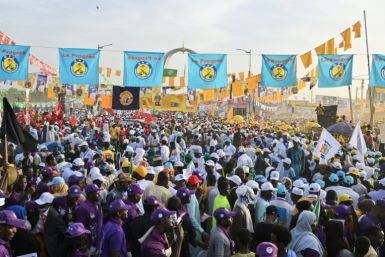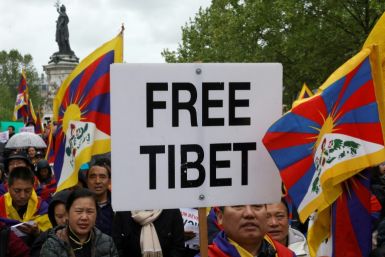Profits: Qantas, Pacific Brands, Seven West, Skilled
Qantas has attempted to quash market rumours it is about to become the target of a $3.5 billion private-equity bid, describing the reports as "pure speculation".
News of the supposed interest saw the shares jump more than 8% on Tuesday. Reports were published in The Australian yesterday, and buried back in the business pages of the Financial Review.
The stories overshadowed the airlines 2011 profit report yesterday which showed the company more than doubled its annual net profit to $250 million from the $112 million made in 2010.
The shares drifted lower yesterday closing down 2c at $1.52 after running to a high of $1.60 before CEO, Alan Joyce strongly denied the rumoured interest and other stories doing the round yesterday about how the airline was cross subsidising Jetstar from its premium business operations.
Mr Joyce said management had not raised concerns in Canberra about the airline being vulnerable to a takeover and described the talk of a looming bid as ''pure speculation".
(The Australian report claimed that the Federal Government had decided to oppose any private equity bid).
"We haven't tried or actioned on the speculation out there. Unless there is something more firm out there ... we are not going to set horses racing," he said.
"The government has to make their own view and has made their own view. We see the value in the company ... we haven't asked the government to come out with any statement," Mr Joyce told a media conference
Mr Joyce said the airline had "had not been formally or informally approached by any private equity about a takeover bid".
Shares touched an all-time low of $1.42 this week, then bounced strongly as that private equity rumour was spread.
Of the result, Mr Joyce said in the statement that it "reflects the strength of the Qantas Group's portfolio and is our best performance since the global financial crisis."
"We achieved the result while overcoming significant external and operational factors, including a series of natural disasters, a 28 per cent increase in average fuel prices and an underperforming international business."
Qantas said underlying profit before tax - the airline's preferred measure of financial performance - was $552 million, compared with the $377 reported for the 2010 year.
Mr Joyce said in the statement "We are pleased to report improved earnings for Qantas Domestic and Qantas Freight and record results for Jetstar and Qantas Frequent Flyer.
"Given the aviation sector's inherent volatility, the flexibility to generate revenue from different parts of the business and different market sectors is a major strength for the Group.
"But it is important to put the result in context. The Group's planned capital expenditure over the next two years exceeds $5 billion. Fuel prices are expected to remain high and there is considerable uncertainty in the global economy.
"Qantas International reported a loss of over $200 million in FY11 on invested capital of over $5 billion, an unacceptable return. Continuing down this path would be unsustainable.
"Last week we announced a five-year plan to turn the international business around. We will reduce investment in underperforming business areas and direct capital towards growth opportunities."
Qantas said it was not possible to provide profit guidance because of the volatility, uncertain economic conditions and the major changes taking place in the company.
And, again no dividend for shareholders.
Another big loss and tough times to come in 2012 for clothing and bed linen producer/importer Pacific Brands which yesterday also revealed it was cutting another 120 jobs, mostly office staff.
The company revealed a full year loss of $132 million, due mainly to the impact of non-cash impairment charges announced at the first half result.
The company said profit was up by 14% to $103.4 million before the significant items.
The net loss compared with the 2010 net profit of $53.2 million.
The company also said that, due to a number of challenges including weak retailing conditions and a higher cotton price, earnings in 2011/12 were likely to decline from the last financial year.
Sales revenue fell 7.3% to $1.61 billion.
A final dividend of 3.1c a share was paid, the same as the interim. That made 6.2c a share for the year. No dividend was paid in the 2010 or 2009 years.
Despite the generally mixed tone of the report, especially the outlook, the company's shares jumped 14.4% to 71c, a rise of 9c.
The reason, a share buyback to be conducted over the 12 months from September will see the company buying back more than 93 million shares, or up to 10% of the issued capital.
"The company considers a flexible on-market buy-back program an appropriate way to return surplus capital to shareholders and is the most value-accretive capital management initiative at this time," directors said.
The tactic was the same adopted earlier this week by Hills, another mid range manufacturer under pressure from weak earnings and shareholder concerns.
The buyback will help support the company's shares in what could be a rough 2012, with the company warning that earnings in 2012 will be lower than in 2011, especially "the first half of 2011".
"The difficult retail environment is well known, but we are also dealing with a strategic shift by Kmart. It will take into next year to fully make up those lost sales but we are making encouraging progress.
"The prevailing headwinds in the retail sector are presently masking some substantial underlying improvements we are making within the businesses."
Gross margins benefited significantly from the transformation benefits flowing from the transition to increased off-shore supply, including improved foreign currency rates.
"As expected, 2H11 earnings were adversely impacted by input cost increases, especially due to higher cotton prices, and these impacts are expected to continue throughout F12," the company said yesterday.
And shares in Kerry Stokes' Seven West Media Ltd soared by well over 22% yesterday after the company revealed a solid first up result after being created earlier in the year from the $4.1 billion merger of West Australian Newspapers and the Seven Media Group.
The shares had sunk from a high of $5.03, after the merger, to a low this month of $2.52 on worries about earnings and the sluggish state of the economy and advertising.
But they jumped 61c to a high of $3.25 yesterday after the group revealed a 19.6% rise in full year profit.
They closed at $3.12, up 48c or 18.2%.
Investors ignored the group describing the outlook as "uncertain and tentative."
Net profit rose to $115.1 million for the 12 months to June 30, from $96.2 million a year earlier.
But on a proforma basis (assuming the two companies were merged for the full year) the company said the figures were "comparable to forecasts contained in the shareholder documentation to approve the creation of Seven West Media. The company also delivered at the high end of its market guidance for EBITDA issued in May 2011.
"On a pro forma basis, Seven West Media delivered earnings before interest, taxation, depreciation and amortisation (EBITDA) of $617.5 million and earnings before interest and taxation (EBIT) of $550.1 million on revenues of $1,960.6 million.
"Total revenue is up 4 per cent on pro forma prior corresponding period (pcp) contained in the shareholder transaction documentation. EBITDA is up 12 per cent on pcp and EBIT is up 14 per cent."
Revenue increased 77.6 per cent to $725.69 million, from $408.69 million.
A dividend of 26c a share was declared.
Restructuring and other costs saw a 75.3% drop in employment agency Skilled Group's full year net profit.
But after 18 months of no dividends, the company has returned to the lists of dividend paying stock with a modest final payment struck.
The company said yesterday its high exposure to the lucrative Western Australian and Queensland mining and resources markets had boosted revenue and underlying earnings, enabling the group to ride out the impact of the restructure and slow demand for labour in some states and industries.
Net profit for the year to June 30 was $3.14 million, down from $12.7 million in the previous year.
Revenue rose 10.5% to $1.876 billion, from $1.697 billion in 2010.
The company said it was impacted in the 2011 financial year by branch co-location/closure costs, the write-off of unamortised bank establishment fees, a goodwill impairment charge of $12.4 million and costs associated with the discontinued sale process of its Swan staffing services subsidiary.
However, Skilled reported growth in revenue and underlying net profit.
Underlying earnings before interest, tax, depreciation and amortisation (EBITDA) was up 19.1% to $82.3 million.
Underlying net profit was $26.1 million for FY2011, compared to $19.2 million in FY2010.
Skilled chief executive Mick McMahon said in the statement 2011's figures were a strong result.
"Approximately 50 per cent of the group's revenue is from Western Australia and Queensland, primarily in the mining and resources and oil and gas sectors," he said in a statement.
"Workforce Services, Swan Contract Personnel, Offshore Marine Services and the OMSA JV contract (servicing Gorgon) have continued to benefit from the growth in these sectors."
The company warned that the 10.5% growth in revenue was unlikely to continue in the 2012 year.
After no dividends being paid for the 2010 financial year or the first half of the 2011 year, the company revealed a 3c a share, fully franked final for the June half.
Despite the return to dividends the shares ended the day unchanged on $1.89.
Copyright Australasian Investment Review.
AIR publishes a weekly magazine. Subscriptions are free at www.aireview.com.au






